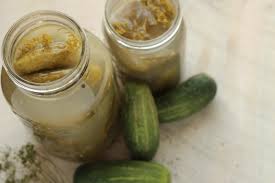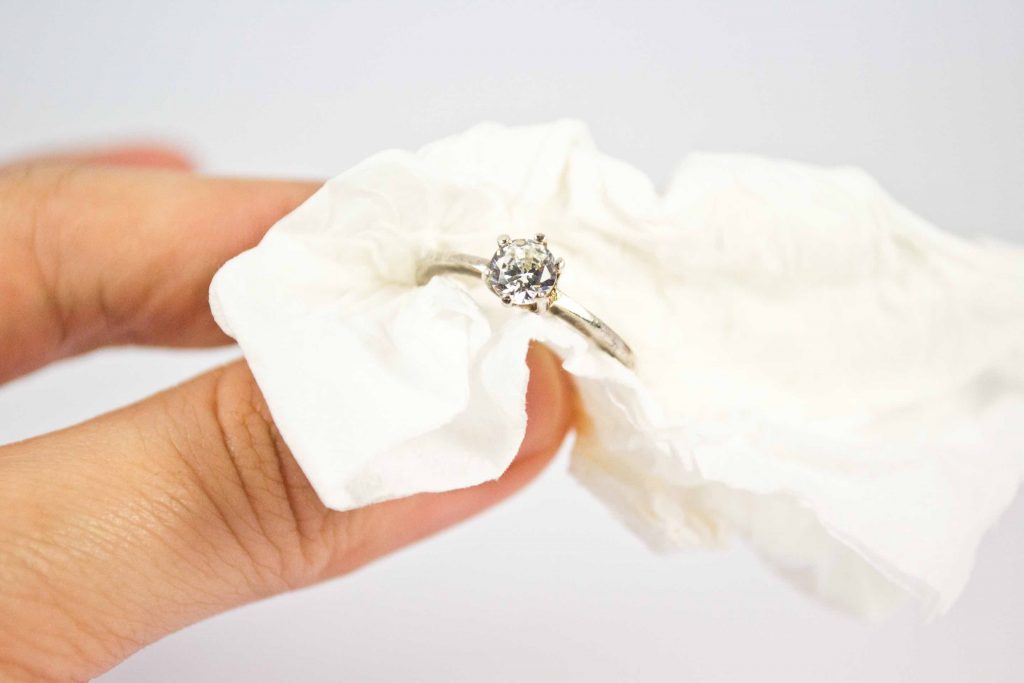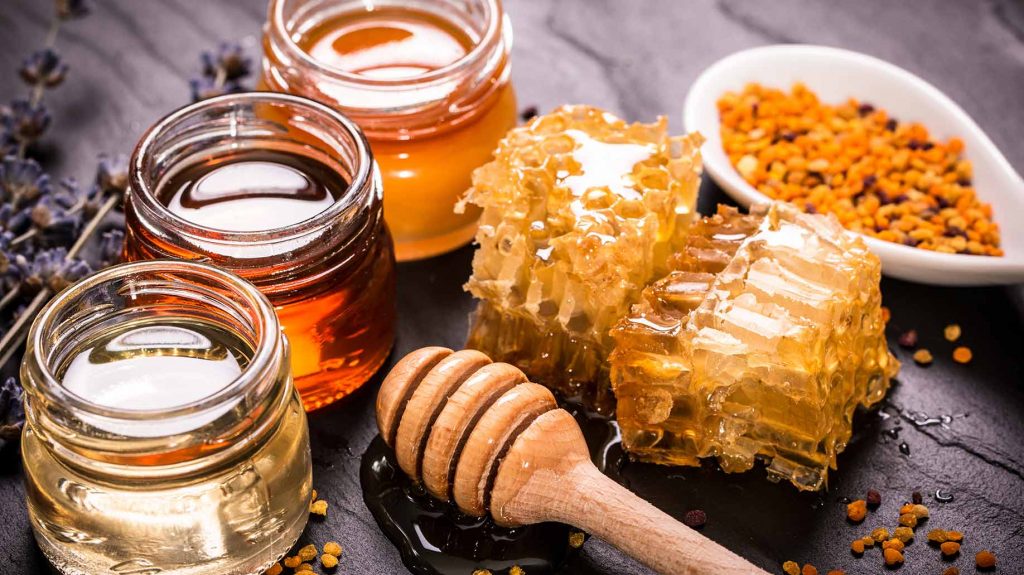Posted by Editor | Comments Off on Fermenting vs. Pickling: What’s the Difference?
Fermenting vs. Pickling: What’s the Difference?
Fermenting and pickling foods have been around for a long time, and are some of the oldest ways of preserving food before there were refrigerators. But while the two methods are different, they actually overlap so much that it’s hard to tell one from the other.
So what’s the difference between the two?
What You Need to Know About Pickling
Pickling is the general term for food preservation where the food is partially broken down by bacteria in an environment without oxygen or air.
The process of pickling starts with boiling the container and lid to sterilize them, and fruits or vegetables are added to the jar along with the brine and left to process on their own until the desired taste is achieved. This brine can be anything from lemon juice, to hot vinegar, to even salt and water.
If it sounds a lot like fermentation, that’s because it falls under this category – and why it can be so difficult to distinguish between the two.
What’s With Fermentation?
Fermentation is essentially the process where sugars are broken down by bacteria in a chemical process that doesn’t involve oxygen.
While this is often used for brewing alcoholic drinks, such as beer, cider, and wine, fermenting has also been used for storing fruits and vegetables in a way that would enhance their flavor while making them last longer.
There are two types of fermentation processes you need to know about:
- Alcohol fermentation – This process breaks down sugars and converts them into ethanol using yeast, and produces alcoholic drinks. It also takes much longer to break the sugars down to ethanol fully, depending on a variety of factors.
- Lactic acid fermentation – With lactic acid fermentation, the natural bacteria in fruits and vegetables break down the sugars in vegetables and release lactic acid as a by-product, which adds to the vitamin content in the food.
While fermentation and pickling is in many ways similar to each other, keep in mind that not all fermented foods are pickles, and not all pickles are fermented.
Pickling can extend to vegetables and even certain spices, such as garlic, and a lot of foods such as yogurt and sourdough bread are the products of fermentation.
Achieving a Healthy Diet
Fresh produce and whole foods can add so much more to your diet when you ferment them, such as the health benefits and the complex flavors that are introduced once the food has been processed by bacteria.
Additionally, fermenting vegetables and fruits can even be something you can do as a hobby that lets you enjoy good food and have something healthy at home – you can enjoy it anytime even if you’re unable to take the time to cook because it’s so easy to prepare.
Read MorePosted by Editor | Comments Off on How to Clean Your Fine Jewelry at Home (and Why You Should)
How to Clean Your Fine Jewelry at Home (and Why You Should)
When you wear jewelry every day, it’s important to keep them in good condition as much as possible by cleaning them regularly. Doing this ensures that they will not just be clean and safe, but also scratch-free and thus retain their sparkle for a really long time.
Why Clean Jewelry?
Dirty, unkempt jewelry can easily be a breeding ground for all kind of germs and bacteria that can lead to skin irritation and allergic reactions, and even discolor or degrade the metals, and even the gemstones themselves.
When you clean your jewelry right, there’s a far lesser risk of damaging them. This means that you should avoid using methods such as rigorous scrubbing, harsh chemicals, or prolonged submersion in liquids.
How to Clean Your Jewelry and Rings
There are a lot of ways you can clean your precious metals and gemstones depending on the stone and the metal, and you can clean them less or more frequently based on how often you wear them around.
Diamond rings, for instance, are quite resistant to wear and tear, and a quick, gentle scrubbing once a week is great if you wear it every day.
However, for jewelry that’s more fragile and worn less frequently, you should steer away from using liquids to clean them as much as possible. The best way to go about cleaning them is by using a soft, damp toothbrush and a polishing cloth.
Other ways of cleaning jewelry include the following:
- Vinegar – For your gold jewelry, let them sit in a shallow container or jar containing white vinegar for ten minutes.
After ten minutes, remove them and use a soft-bristled toothbrush to scrub them clean of any bacteria or mold that may have gathered around the tiny nooks and crevices.
- Baking soda – To get rid of any tarnish from your silver jewelry, prepare a thick paste using 1/4th cup of baking soda and two tablespoons of water.
Apply this to silver using a damp sponge and gently rub. Afterwards, rinse and dry. (Note: Do not use this technique for jewelry with pearls or gemstones, as this can either damage the finish or loosen the glue.)
- Aluminum foil – Line a bowl with aluminum foil. Inside the foil, pour hot water and add a tablespoon of laundry detergent in powder form that’s bleach-free.
Place the jewelry in this solution and let it sit for one minute before rinsing thoroughly and air-drying.
Professional Ring Cleaning
If you purchased jewelry locally, there’s a good chance that the inspections and cleanings are included for the piece’s lifetime.
However, if you purchased it elsewhere, the cleaning may depend on the jeweler, so be sure to choose one who has a keen understanding of the jewelry that you own, especially when it comes to antiques.
(Disclaimer: this list is compiled in no particular order.)
Read MorePosted by Editor | Comments Off on How to Avoid Burning Out From Working Under Pressure
How to Avoid Burning Out From Working Under Pressure
When you’re under stress to perform above and beyond at work, not being able to manage things properly means that you make yourself more prone to what is known as a “burnout”.
Burnout can make you feel overwhelmed, exhausted, and unmotivated to get your tasks done, which is the exact opposite of feeling fulfilled at your work. This can leave you with a huge dip in your overall enthusiasm in both your work and your life in general.
But the good news is that there are ways that will allow you to work well under pressure to avoid the burnout and stay upbeat.
Here’s how you can do it:
- Recharge
It’s actually quite common in Singapore for workers to work long hours, or even take that work home with them during their time off. However, looking at those spreadsheets or reports for more than fifty hours a week is a sure-fire way to feeling that burnout.
To avoid this, it’s important to learn how to take a break and recharge during your downtime – and this means leaving your work in your workplace, and not taking it home with you.
Being able to take a breather allows you to relax during your downtime and take on your tasks with better enthusiasm, but if you find yourself having a hard time doing this, there are a number of relaxation techniques you can try out.
- Take advantage of workplace perks
If your office offers unique benefits, such as a gym membership, health or book clubs, or company-sponsored outings, then use them to your advantage.
This can help you unwind your stress from work as well as give you the opportunity to get to know your co-workers better. More importantly, you’ll be able to unwind and enjoy your downtime.
- Straighten out your priorities
There are a lot of reasons to feel overwhelmed by the huge workload in the office, but it’s even easier to feel overwhelmed and bend to mounting pressure when you don’t have your priorities in order.
The antidote to this is simply to take a step back to assess your workload and figure out which tasks should be given the highest priority, and which ones can wait. By giving yourself a more concrete plan, you’re able to focus on one priority task at a time.
By doing this, you’ll not only keep burnout to a minimum, but you’ll also be able to manage stress more effectively.
What You Should Take Away
The most important thing to remember is that you should take care of yourself especially when working under a lot of pressure. Aside from taking a breather when the going gets a little too tough, it’s also important to take a little bit of self-reflection.
Being able to assess yourself, your work, and your relation to it can mean the difference between motivation and burnout.
Read MorePosted by Editor | Comments Off on Golden Cure: 3 Little-Known Health Benefits of Honey
Golden Cure: 3 Little-Known Health Benefits of Honey
In Singapore and in many other countries in Southeast Asia, honey is most frequently used and understood to only be food-related. Like for marinating or for mixing with water to make an ice honey drink as an answer to the hot climate. Not many people know about its amazing benefits. Here are only some of the many:
- Honey can help heal wounds and burns
The application of honey has been shown to be effective as conventional treatment to healing wounds. It is being considered that the effects of healthy sugars from the body and honey’s properties combine to create this effect.Its antibacterial nature prevents infection and functions as agent for reducing inflammation, swelling, pain, and even scarring. Manuka honey, specifically, is used in the field of medicine because it is an effective germ killer. But, this honey has been tested medically, meaning it is sterile and safe to use. So remember not to expect to treat wounds simply with honey bought from the grocery.
For treatment of burns, honey is applied directly on the affected area or on a dressing that is changed every 1 to 2 days.
- Honey promotes sleep
Having eight hours of sleep is extremely important for our well-being and not having enough sleep could put our health in various risks. Typically, the process that prevents us from falling asleep has to do with liver glycogen. The lack of liver glycogen causes the liver to stop glucose formation, which then triggers the brain to search for fuel, eventually waking us up. Taking a tablespoon of honey before going to bed refuels the liver glycogen therefore helping us sleep with ease.
Taking honey also supports the release of melatonin, a natural hormone that helps with sleep. Honey’s sweetness causes our insulin levels to rise, which then releases serotonin. Serotonin, then, is converted by the body to produce melatonin. Amino acids in honey also contribute to the production of tryptophan, which is also eventually converted to melatonin.
- Helps control cholesterol
Cholesterol is a type of lipid or fat produced by the liver to help the body digest fat. Cholesterol levels are important, but too much of is not good for our health. High cholesterol is an alarming health problem that should be dealt adequately. Low-density Lipoproteins (LDL) or simply, bad cholesterol, can clog the blood vessels and later narrow the arteries that supply the organs like the heart, intestines, and even the brain.
Paying attention to how much meat, eggs, and dairy products we consume is important considering our body is already naturally producing cholesterol. Honey, being free of cholesterol, could keep cholesterol levels balanced. With nutrients such as calcium, potassium, and B vitamins, it lowers the cholesterol in our blood. Honey also has anti-oxidants that prevents cholesterol from moving into the lining of blood vessels.
Read MorePosted by Editor | Comments Off on 3 Things You Need to Do to Become a Better Writer
3 Things You Need to Do to Become a Better Writer
Singapore has been the home of many great writers over the years. Poets Yeow Kai Chai and Lee Tzu Pheng, and fiction author Catherine Lim are only some. But writing, even for these greats, is not a straight road to glory. It is a rough path that takes time to improve on. Given that, here are 3 great things to remember to improve as a writer.
- Read
Being good in writing is a skill that is complicated and cannot be easily taught. This is because writing is as unique as the writer himself. Everyone has his/her own way of writing.
Reading comes in the picture because it basically teaches you how to write. Reading different genres and pieces from many different writers can show you which style of writing you want to achieve. Initially, you might want to copy a certain style from a famous writer you like and later put your own twist into it. Reading can also help to get inspiration. When you feel stuck and don’t know how to continue your writing, read. You might find some words or phrases that you could use as inspiration.
- Accept criticism openly
A good writer admits to the fact that he needs feedback from others. To become a better writer getting comments from others is just as important as the writing process itself. More than that, it should be from someone you can trust. The last thing you want to hear are superficial and careless comments.
You would want to try and get criticism from experienced writers and those who barely write at all. The difference between both is that the former has an “eye” for writing and the latter wants to read something they can relate to or that can appeal to them. The great thing about this is that experienced writers will be harsh with their comments because this way they know you will improve. People who barely write, on the other hand, may shower you with compliments when you give them something they actually want to read.
- Write every day
When you are learning something, it’s best if you can do it repetitively. You can only get better at something if you familiarize and immerse yourself in it. You should develop the mindset of writing every day as practice to become a better writer.
You have about 12-15 waking hours a day to write about something. Don’t worry if in the morning you can’t think of anything to write, afternoon will come. And if you can’t think of anything in the afternoon, there’s still night. By the time night comes and you still have nothing, then just write about how your day went. Constant writing will help you grow creatively. Just by writing every day, you will notice that even if it’s just a little, you have improved as a writer.
Read More















